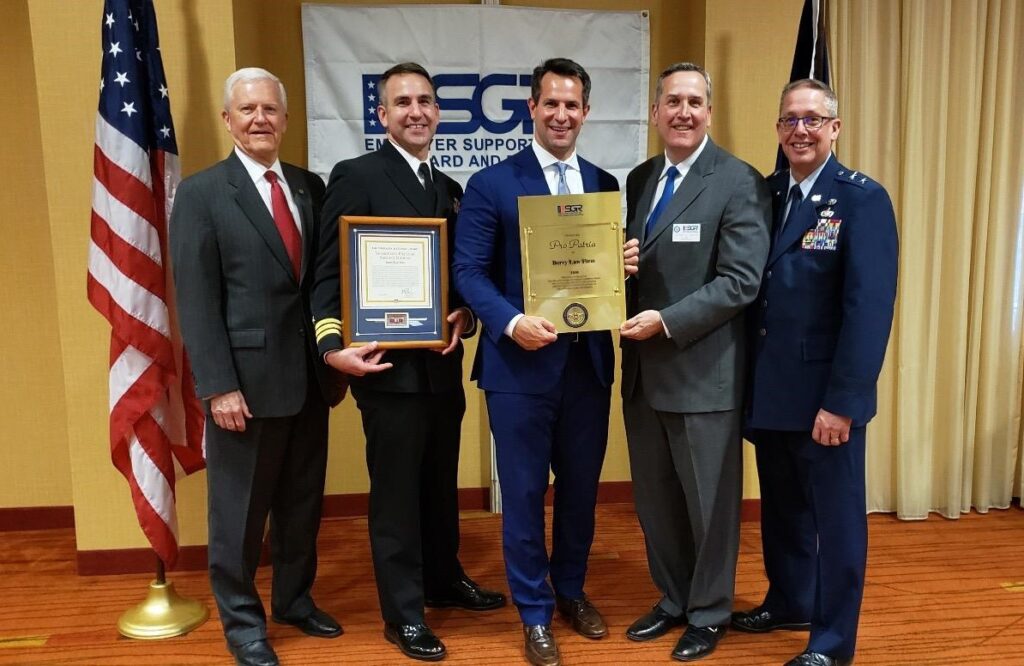
A traumatic brain injury, commonly known as a TBI, is a type of brain injury that occurs when there is a sudden external force applied to the head, resulting in damage to the brain. TBI can also result from exposure to explosive shockwaves.
TBIs can range in severity from mild to severe and can have a wide range of effects on a person’s physical, cognitive, emotional, and behavioral functioning.
Immediate TBI symptoms include loss of consciousness, confusion, blurred vision, headache, nausea, fatigue, problems with speech, and concentration difficulty. In many cases, symptoms fade as the injury heals.
For some, however, TBI symptoms can persist for months or years and, in some cases, be permanent. These long-term TBI symptoms are also known as residuals of TBI.
Residual TBI symptoms can manifest as physical, cognitive, or behavioral disabilities. Common residuals of TBI include:
Furthermore, some individuals may develop complications over time, such as:
Unfortunately, due to their time in active duty, many Veterans who have suffered a head injury in service, experience TBI residuals. Veterans who can establish a service connection for their symptoms may be eligible for VA disability compensation.
When considering a Veteran’s TBI rating, the VA does not apply the initial severity of a TBI, but rather the residual effects on the Veteran. The VA follows 38 CFR § 4.124a — Schedule of ratings — neurological conditions and convulsive disorders.
Since no two brains react the same way to a head injury, the VA breaks the rating criteria down into 10 facets of TBI based on severity, which are as follows:
During an evaluation, a VA examiner assigns a level of impairment for each of the categories listed above. Most facets are given a value range of 0 to 3, or sometimes 0 to “total.” The exception is facet 10, consciousness, which the VA can only rate as “0” or “total.”
The VA then bases its percentage rating on the highest level of impairment in any facet. For instance, if the highest level of impairment were “total” in the consciousness facet, the Veteran would be given a rating of 100 percent. If the highest level of impairment were a 3 in any facet, the rating would be 70 percent, if it were 2 the rating would be 40 percent, and if it were 1 the rating would be 10 percent.

For example, let’s say a Veteran was involved in an explosion in service and lost consciousness. When they woke up, they were dizzy, confused, and had a headache.
As time went on, their symptoms grew worse until they could hardly remember anything or concentrate at all. When they got out of the service, they filed for VA disability benefits based on their symptoms and a VA examiner assigned the following level of severity to each facet.
The examiner in the example above assigned a total level of impairment to the Veteran’s memory, attention, concentration, or executive functions. Regardless of the level of impairment given to other facets, the VA would give the Veteran a 100 percent rating based on their total impairment in this facet.
The above is a rare example of extremely severe residuals of TBI. Much more likely, the VA will give a Veteran a 10 or 40 percent rating for their TBI. If a Veteran is already service connected for a psychiatric condition, it is common for the VA to combine the TBI residuals with the psychiatric condition, providing the Veteran with the highest rating of the two. This occurs because oftentimes there are overlapping symptoms between a psychiatric condition and a TBI.
A TBI may also qualify a Veteran for special monthly compensation (SMC), which is additional money paid regardless of the Veteran’s overall combined compensation. In other words, a Veteran would receive additional money for SMC even if they were rated 100 percent.
A Veteran’s TBI qualifies them for a special kind of SMC if they meet the following criteria:
If all three criteria are met, the Veteran may qualify for SMC.
If a Veteran has a service-connected TBI and develops one of the following five impairments, the Veteran should file secondary claims for service connection. . Those illnesses include:
While having one of the above conditions does not guarantee a service connection, the VA may grant you the connection on a secondary theory unless it can demonstrate that your illness is related to something else.

The VA’s rating schedule determines the amount of disability compensation a Veteran receives. The VA will evaluate your level of TBI residual disability and assign a rating. The 2024 VA disability rate benefit amounts for Veterans alone with no dependents are:
Veterans with dependents, such as a spouse, children, or parents may be eligible for higher amounts.
To obtain VA disability benefits for TBI residuals, you must show the VA that your disability is connected to your military service. To accomplish this, your claim and evidence must show three things:
When you apply for VA disability compensation for a TBI, the VA will review evidence for evidence to establish a service-related injury, such as:
The VA may order you to attend a Compensation & Pension examination, during which a VA clinician or third-party contractor will examine you and provide a medical opinion on the nature and severity of your condition. Failure to attend this appointment will likely result in the VA denying your claim.
You can also have your own medical provider complete a VA disability benefits questionnaire and provide their own medical opinion. The VA will consider this against their own examiner’s opinion when making a decision in your case.
Once the VA processes your claim, the VA Regional office will notify you by mail of your disability rating and monthly benefit amount. If you disagree with the VA’s decision, you have the right to appeal.
Appealing a VA disability rating can be confusing and frustrating. You don’t have to deal with the process alone. The VA disability attorneys at Berry Law understand the claims and appeals process. We know the kinds of evidence that can help prove your disability is related to your time in service. And we know how to maximize an assigned disability rating for TBIs. We will stand by you because we believe that every Veteran should get the VA disability compensation they deserve.
Berry Law was founded by Vietnam War Veteran and legendary trial lawyer John Stevens Berry Sr. We are proud to have many military Veterans among our attorneys and staff who understand what it means to serve and know, firsthand, the struggles many of our clients face every day.
If your VA disability claim has been denied, Berry Law may be able to help. We have been successfully representing Veterans for decades. Contact us today for a free evaluation.
Our monthly newsletter features about important and up-to-date veterans' law news, keeping you informed about the changes that matter.